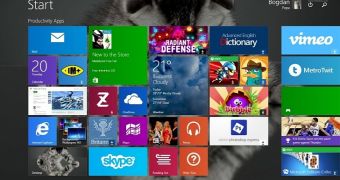China today decided to ban the use of Windows 8 on government computers in a decision that confirms Microsoft's struggle to boost sales in the country and work with local authorities to fight piracy.
The Central Government Procurement Center hasn't provided any official reason for this new decision, but it mentioned on its website that the ban was part of its energy-saving efforts. While this has absolutely nothing to do with Windows 8, there is no doubt that Microsoft cannot be pleased with such a restriction, especially because sales in China have remained pretty low in the last few years.
As you can see, local authorities haven't provided too many details on this, but one might wonder whether this ban is related to Microsoft's decision to cut down support for Windows XP just after the Chinese government purchased valid licenses for this particular OS version.
In fact, China is one of the countries that have asked Microsoft to continue providing support for Windows XP for local users at no additional costs, pointing out that they only recently purchased genuine licenses, so moving to a newer OS version was very expensive.
Microsoft obviously reject such a proposal, explaining that just like all the other countries in the world, China needs to upgrade their computers in order to remain secure or pay for custom XP support.
“Microsoft China has taken special actions to closely work with leading Chinese internet security and anti-virus companies including Tencent for them to provide security protection for Chinese Windows XP users before they upgrade to modern operating system,” a statement released by Microsoft said.
On the other hand, China has also started development of its very own Windows XP alternative based on Linux, saying that it hopes users to at least give it a try. The operating system would obviously be offered free of charge to all computer users in the country and come with a familiar interface that would resemble the one offered in Windows XP, sources said.
At the same time, local authorities referred to Windows 8 as a too expensive product, saying that they prefer to stay on Windows XP until they develop a more affordable replacement. Windows XP, on the other hand, remains the most popular operating system in the country, while Windows 8 is only installed on approximately 3 percent of the local desktop computers, according to third-party statistics.
We've reached out to Microsoft for a word on this, so we will update the article accordingly.

 14 DAY TRIAL //
14 DAY TRIAL //